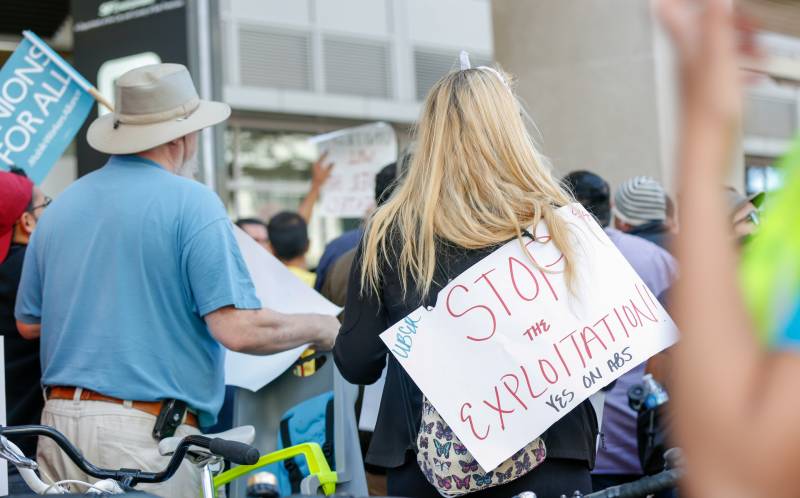The law, AB 5, was passed by the state Legislature earlier this year and is set to take effect Jan. 1. The bill makes it harder for companies to classify workers as independent contractors instead of employees, who are entitled to minimum wage and benefits such as workers' compensation. It establishes the nation's strictest test on who qualifies as an employee and could set a precedent for other states to follow.
The lawsuit filed by the Pacific Legal Foundation, a nonprofit libertarian group, challenged what it calls an “irrational and arbitrary” limit of 35 submissions each year to each media outlet.
That has “thrown our community into a panic, given that in the year 2020 digital media is a whole different beast than newspapers and journalism of the past,” said Los Angeles-based writer Maressa Brown, who founded California Freelance Writers United in September.
“You could hit 35 (submissions) in a matter of a few weeks, and we don’t feel that should require us submitting a W2, sitting in an office and tethered to a computer and under the oversight of one client,” said Brown, who likes having up to 15 clients at one time. “People are losing clients, income. Their livelihoods are under threat.”
The lawsuit says the freelance restriction draws “unconstitutional content-based distinctions about who can freelance,” noting that “the government faces a heavy burden of justification when its regulations single out the press.”
“First, it was the Endangered Species Act, then women on corporate boards, and now the Pacific Legal Foundation is attacking California’s landmark workplace rights law. That should come as no surprise to anyone,” the bill’s author, Democratic Assemblywoman Lorena Gonzalez of San Diego, said in a statement.
Gonzalez also responded on Twitter to criticisms from some freelance reporters and photographers.

